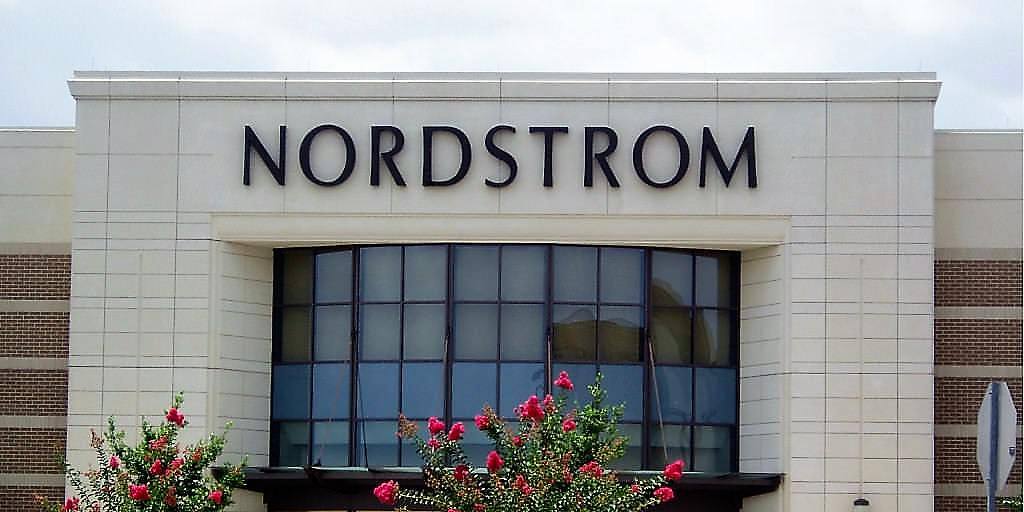Nordstrom, Inc., is a prestigious American department store chain with its headquarters situated in Seattle, Washington. It was established back in 1901 by John W. Nordstrom and Carl F. Wallin. Initially, their store, known as Wallin & Nordstrom, exclusively sold shoes. However, in 1923, they expanded by opening a second shoe store under the Nordstrom name.
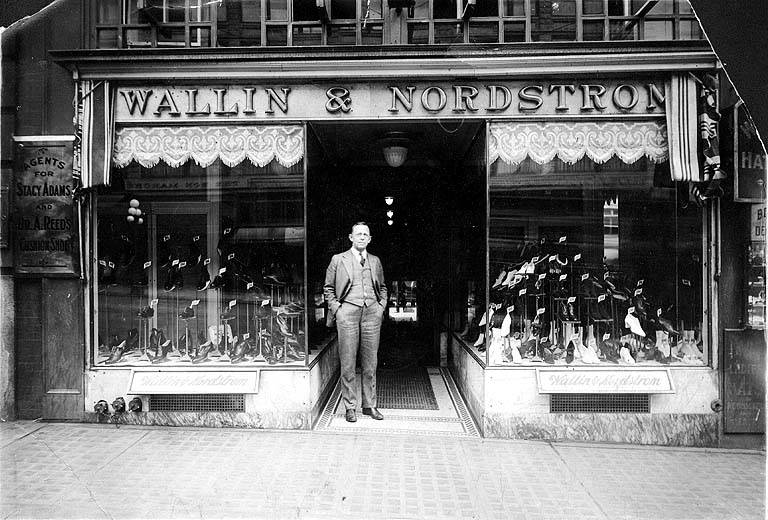
Nordstrom began as a small shoe store in Seattle, Washington. Over the years, the company has grown to include over 350 stores in 40 states, as well as a thriving online business. Nordstrom is known for its wide selection of high-quality merchandise, its excellent customer service, and its commitment to sustainability.By 1971, Nordstrom had transformed into a comprehensive department store, offering a wide range of products.
Nordstrom also offers a variety of services to its customers, including personal styling, alterations, and gift wrapping. The company also has a generous return policy and offers free shipping on orders over $50.
In 1973, the company introduced its Nordstrom Rack division, specializing in off-price merchandise. Over time, both the full-line and off-price divisions expanded across the United States, competing with other department stores like Bloomingdale’s, Macy’s, Neiman Marcus, and Saks Fifth Avenue, as well as off-price retailers such as the TJX Companies and Ross Stores.
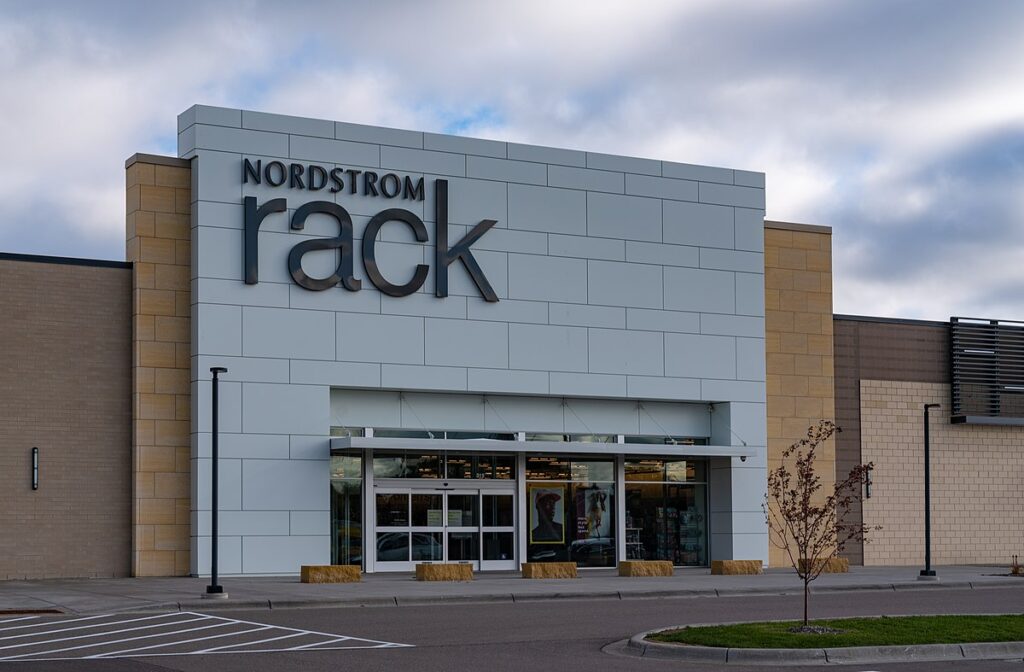
Nordstrom’s reach extended beyond the contiguous United States with expansions into Puerto Rico from 2015 to 2020 and Canada from 2014 to 2023. Today, Nordstrom stands as a prominent player in the American retail landscape, offering a wide array of high-quality products to its discerning customers.
Marketing Strategies of Nordstrom
Nordstrom, a renowned American department store chain, has developed a comprehensive set of marketing strategies to cater to its upscale, fashion-conscious customer base. Here’s a detailed explanation of Nordstrom’s key marketing strategies:
1. Customer-Centric Approach
Nordstrom’s customer-centric approach is one of the key factors contributing to its success as a leading luxury department store chain. By focusing on providing an excellent customer experience, Nordstrom differentiates itself from competitors and creates long-term relationships with its clientele. Some ways Nordstrom implements this approach include:
Personalization: Nordstrom uses data analysis and artificial intelligence to tailor product recommendations and services to individual customers based on their purchasing history, browsing habits, and other behaviors. For example, the company’s “Style Boards” feature allows customers to save and share outfit ideas, which can then be used by Nordstrom’s personal stylists to suggest relevant clothing items.
Omnichannel Integration: Nordstrom provides a seamless shopping experience across various channels, such as brick-and-mortar stores, online, and mobile devices. Customers can pick up online orders in-store, return items purchased online to physical locations, and access the same level of service regardless of whether they interact with the brand digitally or physically.
Excellent Customer Service: Nordstrom employees receive extensive training in providing top-notch customer assistance. Sales associates are empowered to resolve issues on the spot without requiring approval from management, allowing for quick resolution of problems and increased customer satisfaction.
Loyalty Programs: Nordy Rewards, the company’s loyalty program, offers members personalized deals, early access to sales, and special services like complimentary alterations and curbside pickup. These benefits help retain existing customers and attract new ones by creating value beyond simple transactions.
Concierge Services: Nordstrom offers concierge services to make shopping easier and more comfortable for customers. For example, the company’s “Trunk Club” service provides personalized styling advice and delivers a selection of clothes directly to customers’ homes for try-on sessions. Similarly, Nordstrom’s “Fashion Pass” membership grants customers access to exclusive previews, private styling appointments, and other premium services.

2. Merchandise Selection and Curation
Nordstrom’s merchandise selection and curation play a significant role in its marketing strategy. The company takes pride in offering a wide range of quality products, including both well-known labels and niche, hard-to-find brands. Here are some examples of how Nordstrom approaches merchandising:
Product Mix: Nordstrom carries a diverse mix of products, from everyday essentials to high-end luxury goods. This variety ensures there’s something for everyone, no matter what their budget or style preference may be. By carrying a broad assortment of items, Nordstrom appeals to a wider audience and increases the likelihood of repeat business.
Brand Diversity: Nordstrom features a vast array of brands, from established names like Chanel and Gucci to newer, lesser-known designers. This diversity helps keep the store fresh and exciting, encouraging customers to explore different styles and discover new favorites. It also positions Nordstrom as a destination for those seeking unique finds not available elsewhere.
Seasonal Focus: Nordstrom regularly updates its offerings to align with current seasonal trends. Whether it’s swimwear during summer months or cozy sweaters come winter, the company keeps its merchandise relevant and enticing to shoppers looking for timely pieces. This attention to seasonality helps drive foot traffic and boost sales throughout the year.
Collaborations and Limited Editions: Nordstrom frequently teams up with notable designers and artists to create exclusive capsule collections or limited edition products. These collaborations generate buzz and excitement among customers, drawing them into the store to check out the latest releases. They also provide opportunities for Nordstrom to showcase its ability to identify and support emerging talent.
3. Omni-Channel Strategy
Omni-channel strategy plays an essential role in Nordstrom’s marketing efforts. The retailer has developed a comprehensive approach to connecting with customers across multiple touchpoints, which includes:
Online Order Pickup in Store (BOPIS): Customers can order items online and choose to pick them up in-store, often within hours. This option enables Nordstrom to leverage its extensive brick-and-mortar network for added convenience and speedy delivery. BOPIS also drives foot traffic to stores, potentially leading to additional purchases once customers arrive.
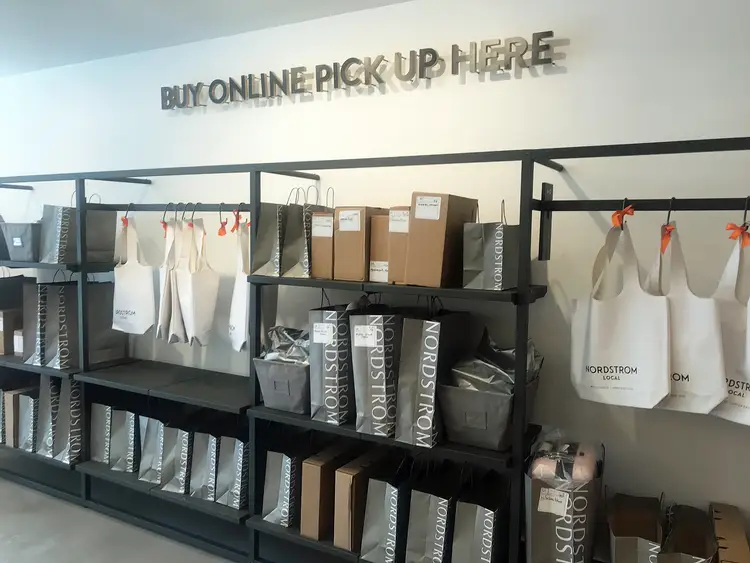
Reserve & Try In-Store: Similar to BOPIS, this feature lets customers reserve items online and then try them on in-person before deciding whether to buy. This service blurs the lines between e-commerce and traditional retail, giving customers greater flexibility and control over their shopping experiences.
Mobile App Integration: Nordstrom’s mobile app serves as a central hub for customers to browse, purchase, track orders, and manage their accounts. With features such as barcode scanning, push notifications, and easy checkout, the app makes it effortless for customers to engage with the brand across various platforms.
4. Exclusive Loyalty Program
Nordstrom’s loyalty program, known as The Nordy Club, functions as a valuable marketing tool for the retailer. Launched in 2019, The Nordy Club offers members rewards, perks, and special events designed to deepen their relationship with the brand. Some ways that The Nordy Club supports Nordstrom’s overall marketing strategy include:
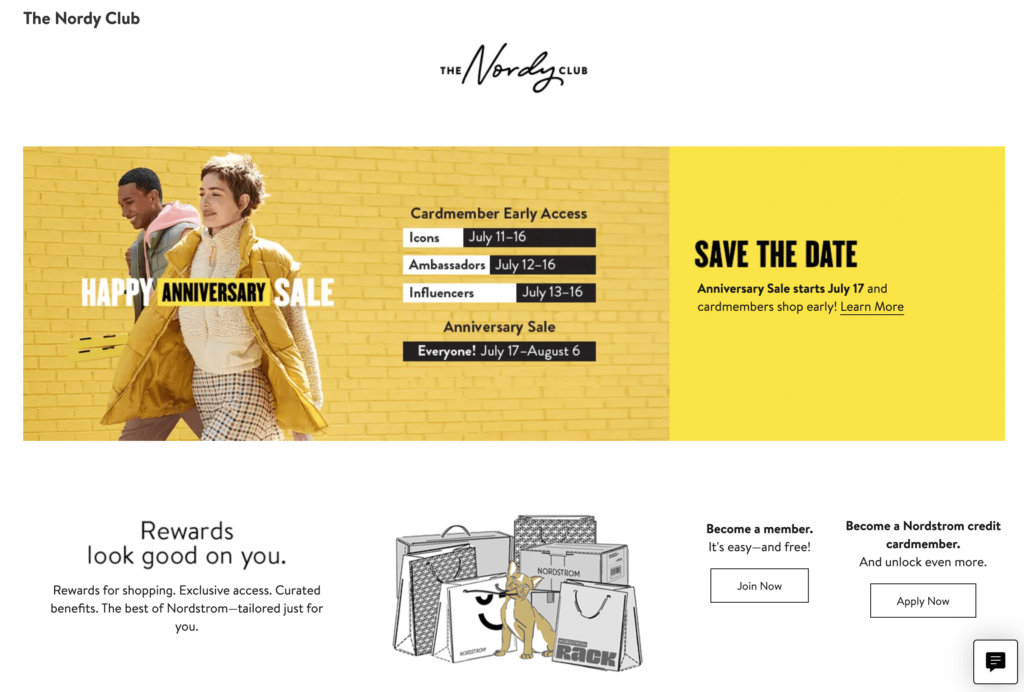
Customer Retention: By rewarding frequent shoppers with benefits such as early access to sales, free alterations, and personalized birthday gifts, The Nordy Club encourages customers to remain loyal to Nordstrom. As a result, these individuals are more likely to make repeated purchases and become long-term advocates for the brand.
Data Collection: Through The Nordy Club, Nordstrom collects valuable information about its most engaged customers, including their spending habits, preferred product categories, and communication preferences. This data can inform future marketing initiatives, allowing Nordstrom to better target its messaging and optimize its offerings to meet specific customer needs.
Brand Building: The Nordy Club reinforces Nordstrom’s image as a premier fashion destination by creating a sense of exclusivity around its loyalty program. Members feel valued and appreciated, fostering stronger emotional connections with the brand. Additionally, word-of-mouth referrals from satisfied Nordy Club participants can help attract new customers who share similar interests and values.
5. Sales and Promotions
Sales and Promotions play a significant role in Nordstrom’s marketing strategy. While the retailer emphasizes high-quality products and exceptional customer service, it also leverages tactical pricing strategies to drive sales and attract new customers. Here are some examples of how Nordstrom utilizes sales and promotions as part of its broader marketing plan:
Anniversary Sale: Each July, Nordstrom hosts its annual Anniversary Sale, offering discounts on select merchandise for a limited time. This event generates substantial media coverage and social media buzz, driving traffic to both physical stores and the brand’s online platform. The sale creates urgency among customers, motivating them to make purchases they might have otherwise delayed.
Clearance Events: Throughout the year, Nordstrom runs clearance sales on certain items or departments, helping to move inventory and stimulate demand. These promotions give customers an opportunity to snag deals while also keeping Nordstrom’s assortment fresh and up-to-date.
Personalized Email Campaigns: Nordstrom sends targeted emails to subscribers featuring curated product recommendations, exclusive previews of new arrivals, and customized promotions based on each recipient’s past purchasing history. These messages help build relationships with customers and encourage repeat business through personalized, value-driven communications.
6. Visual Merchandising and Store Experience
Nordstrom invests in visually appealing store displays and layouts to create an inviting and aesthetically pleasing shopping environment. They often collaborate with artists and designers to create unique in-store installations and experiences.
By carefully crafting immersive environments that showcase products and services, Nordstrom strives to create memorable moments for customers that extend beyond mere transactions. Here are some aspects of Nordstrom’s visual merchandising and store experience strategy:
Atmosphere and Aesthetics: Nordstrom pays meticulous attention to detail when designing its stores, ensuring every aspect contributes to a cohesive, upscale ambiance. From lighting and color schemes to furniture and decor, the company prioritizes elegance and sophistication throughout its spaces.
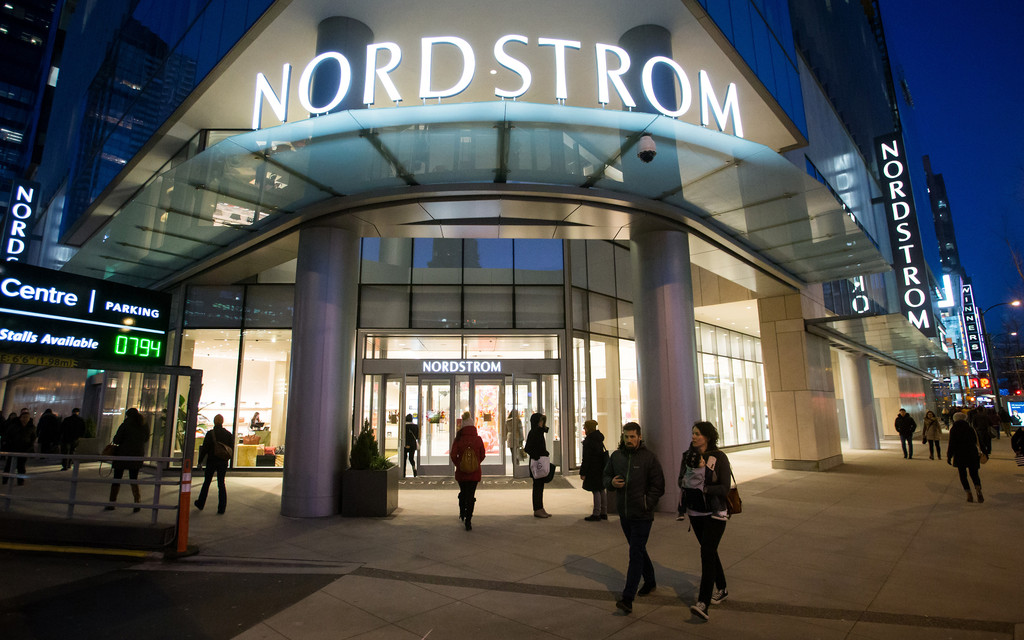
Product Display: Nordstrom arranges its merchandise thoughtfully, using creative techniques like vignettes, mannequins, and interactive elements to highlight key pieces and trends. The goal is to inspire customers and spark interest in exploring different styles and categories.
Services and Concierge Offerings: Beyond just displaying goods, Nordstrom focuses on providing exceptional customer service through amenities like personal styling appointments, beauty consultations, and complimentary refreshments. These touchpoints enhance the overall shopping journey, making visits to Nordstrom more enjoyable and memorable.
Digital Integration: Nordstrom incorporates technology into its in-store experiences, enabling customers to interact with virtual versions of products, access detailed information, and request assistance from associates via tablets or other devices. This fusion of physical and digital elements adds convenience and engagement opportunities for shoppers.
In conclusion, Nordstrom’s marketing strategies center around delivering exceptional customer experiences, offering a curated selection of high-quality products, and maintaining a strong online and offline presence. Their emphasis on personalization, loyalty programs, and community engagement contributes to their success in the competitive retail industry.
Marketing Mix of Nordstrom
Nordstrom, the upscale American department store chain, employs the marketing mix, often referred to as the 4Ps: Product, Price, Place, and Promotion, to effectively market its luxury products and provide a superior shopping experience. Here’s a detailed explanation of how Nordstrom utilizes each element of the marketing mix:
Product
-
- Product Quality and Variety: Nordstrom offers a wide range of high-quality products, including fashion apparel, footwear, accessories, beauty products, and home goods. They focus on curating a selection of premium and luxury brands to cater to their discerning customer base.
- Private Label Brands: Nordstrom features its own private label brands, such as Nordstrom Signature and Nordstrom Made, which provide exclusive and unique products to differentiate themselves in the market.
- Customer-Centric Services: Beyond physical products, Nordstrom emphasizes customer-centric services, including personal styling, alterations, and beauty consultations, to enhance the overall shopping experience.
Price
-
- Premium Pricing: Nordstrom adopts premium pricing strategies due to its focus on luxury and high-quality merchandise. Customers expect to pay a premium for the quality and exclusivity of the products and services offered.
- Sales and Discounts: While Nordstrom maintains premium pricing, they strategically use sales events like the Anniversary Sale and “Clear the Rack” clearance events to attract price-sensitive shoppers and create a sense of urgency.
Place (Distribution)
-
- Omnichannel Presence: Nordstrom seamlessly integrates its online and offline channels, allowing customers to shop through the website, mobile app, and physical stores. They provide consistent pricing, product information, and promotions across all channels.
- Brick-and-Mortar Stores: Nordstrom operates a network of upscale department stores in various locations, often in prime shopping districts and malls, to provide a convenient and luxurious in-store shopping experience.
- E-commerce: Nordstrom’s robust e-commerce platform allows customers to shop online, access virtual try-on features, and enjoy services like curbside pickup and same-day delivery in select areas.
Promotion
-
- Digital Marketing: Nordstrom leverages digital marketing channels, including email marketing, social media advertising, and online display ads, to reach and engage with its target audience. They use customer data to personalize marketing messages.
- Loyalty Program: Nordstrom’s loyalty program, Nordstrom Rewards, promotes customer retention by offering rewards, early access to sales, and exclusive events to members.
- Visual Merchandising: Nordstrom invests in visually appealing store displays, window showcases, and in-store installations to create a captivating and immersive shopping atmosphere.
- Community Engagement: Nordstrom engages with local communities through charity partnerships, local artist collaborations, and sponsorships of events and fashion shows. These efforts foster a sense of community and align the brand with local culture and values.
In summary, Nordstrom’s marketing mix is carefully crafted to cater to the luxury retail segment. They emphasize product quality, customer experience, omnichannel integration, and premium pricing while leveraging digital marketing, loyalty programs, and community engagement to create a strong brand presence and maintain customer loyalty in a competitive market.
Also Read: Marketing Strategies, Marketing Mix and STP of Levi’s
To read more content like this, subscribe to our newsletter

